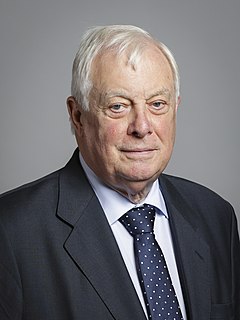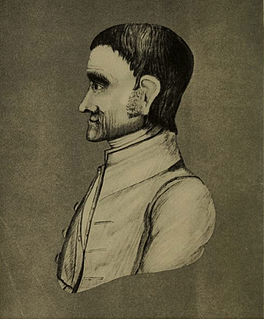A Quote by Chris Patten
It behaves more like a tribe than a democratic institution...responding to custom rather than reason and using its own liturgy and language for the conduct of its domestic affairs.
Related Quotes
I believe there is no liturgy in the world, either in ancient or modern language, which breathes more of a solid, scriptural, rational piety, than the Common Prayer of the Church of England. And though the main of it was compiled considerably more than two hundred years ago, yet is the language of it, not only pure, but strong and elegant in the highest degree.
But I'd rather help than watch. I'd rather have a heart than a mind. I'd rather expose too much than too little. I'd rather say hello to strangers than be afraid of them. I would rather know all this about myself than have more money than I need. I'd rather have something to love than a way to impress you.
I think it's important to reason from first principles rather than by analogy. The normal way we conduct our lives is we reason by analogy. [With analogy] we are doing this because it's like something else that was done, or it is like what other people are doing. [With first principles] you boil things down to the most fundamental truths…and then reason up from there.
Never lose your self-respect, nor be too familiar with yourself when you are alone. Let your integrity itself be your own standard of rectitude, and be more indebted to the severity of your own judgment of yourself than to all external percepts. Desist from unseemly conduct, rather out of respect for your own virtue than for the strictures of external authority.
In a world in which we are exposed to more information, more options, more philosophies, more perspectives than ever before, in which we must choose the values by which we will live (rather than unquestioningly follow some tradition for no better reason than that our own parents did), we need to be willing to stand on our own judgment and trust our own intelligence-to look at the world through our own eyes-to chart our course and think through how to achieve the future we want, to commit ourselves to continuous questioning and learning-to be, in a word, self-responsible.
If you have more than one reason to do something (choose a doctor or veterinarian, hire a gardener or an employee, marry a person, go on a trip), just don’t do it. It does not mean that one reason is better than two, just that by invoking more than one reason you are trying to convince yourself to do something. Obvious decisions (robust to error) require no more than a single reason.
American statesmen might like some Europeans more than others and even detect quaint resemblances to their own outlook; but they no more committed themselves to a particular group or country than a nineteenth-century missionary committed himself to the African tribe in which he happened to find himself.
Liberals state that many teenagers would rather sell crack for $100 an hour than to flip hamburgers for a minimum wage. Using the same liberal logic, you might think it would make more sense for the average middle-class worker to rob banks rather than work a forty-hour week? The reason why most people, rich and poor, do not commit crimes because they know it is wrong to do so.


































